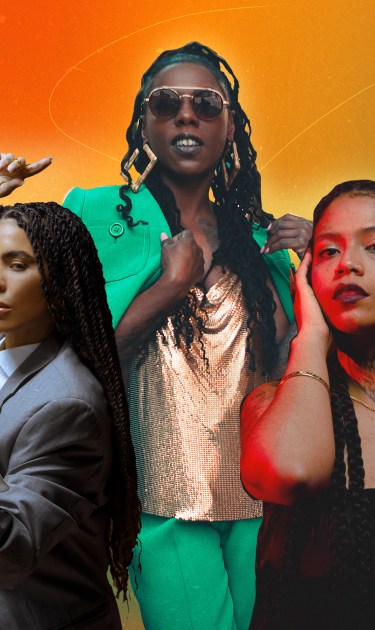When Black women in Latin America take the musical stage, the legacy of joy as resistance in their voices is palpable. For generations, icons like Omara Portuondo and the late Celia Cruz have enchanted us with their charisma, spontaneous riffs, and powerful voices. Today, a new generation of women like Lido Pimienta and Ibeyi bring authenticity to global audiences with their unique fusion sounds and moving voices. These women have a sort of magic inherited from the Black communities they represent: soul.
Soul music is a genre that is hard to define, as it is less about specific sounds and rhythm and more about capturing emotions of sorrow and resistance that represent the endurance of the Black community. Across Latin America and the Caribbean, there are Spanish words that capture this sentiment as well — aché, saoco, flow, tumbao. When Afrolatinas sing, this is the spirit that often moves through them. It is the kind of thing that cannot be duplicated or manufactured, let alone defined. It’s the kind of vibe that audiences feel in their hips when they are called to dance and in their hearts when they’re moved to tears.
On a day like today in 1992, Black women from over 30 countries in Latin America and the Caribbean gathered in the Dominican Republic for a conference to discuss their collective struggle. On that occassion, they decided that July 25 would become el Día Internacional de la Mujer Afrolatina, Afrocaribeña y de la Diáspora (International Day of Afro-Latin, Afro-Caribbean and Diaspora Women).
Thirty years have passed since this momentous occasion, and in the music industry, Black women are making strides to reclaim their power. This year, Petrona Martinez, the queen of bullerengue, got her first Latin Grammy nomination and award at the age of 82. This holds true even as Afrolatinas have to face challenges every step away, from systemic racism and oppression to coming up against gatekeepers in the Latine music industry who continue to discriminate and favor white and light-skinned Latinas.

Still, Black women continue shining and carving out space for themselves with conviction, creativity, and the blessing of their ancestors.
Today, we want to honor the new generation Afrolatinas — La Dame Blanche, Immasoul, Marlene Mercedes from El Gran Poder de Diosa, Charlotte Dos Santos, Yanna, and Mabiland —mesmerizing audiences with their incomparable flow by asking them who are the Black women past and present on their playlists.




